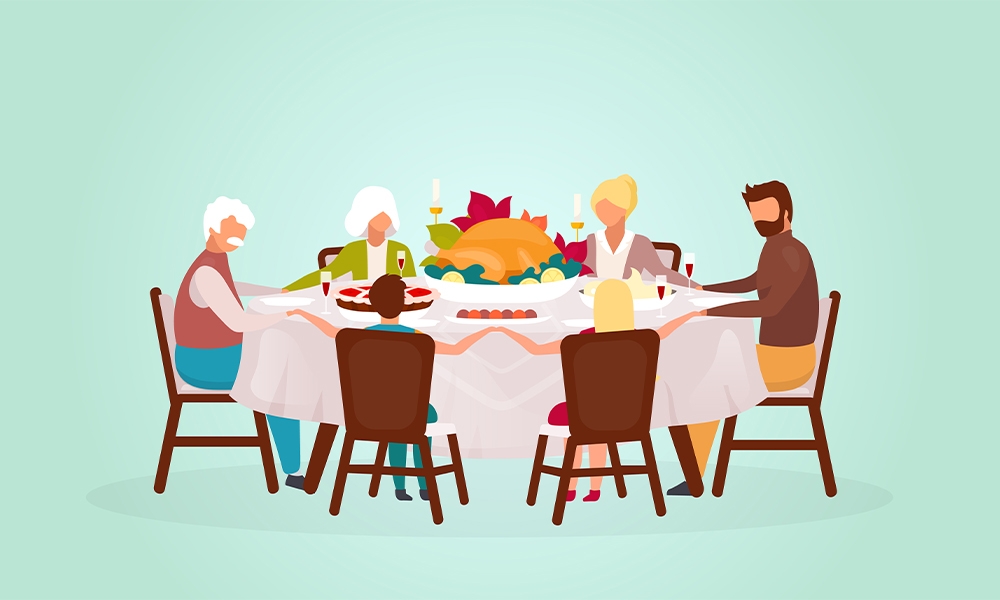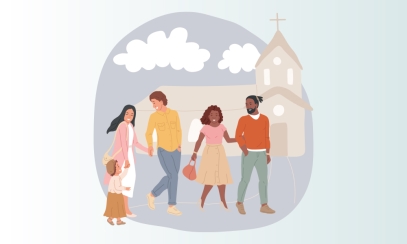
Peace, love, and apple pie
This is the time of year when many of us attend “holiday cheer” gatherings which include extended family. As much as we might try to sugarcoat it, this can be a tough time for a variety of reasons. Let’s take a quick look at one roadblock that can get in the way as we attempt to “drink a cup of kindness” with our loved ones.
This is the time of year when many of us attend “holiday cheer” gatherings which include extended family. As much as we might try to sugarcoat it, this can be a tough time for a variety of reasons. Let’s take a quick look at one roadblock that can get in the way as we attempt to “drink a cup of kindness” with our loved ones.
First, a quick disclaimer: The purpose of this article is not to minimize what some people have experienced with family members who should have been displaying love and care. Persons who have been seriously hurt emotionally by family members might even have a need to set a hard boundary. Today, however, we are looking at a more garden-variety “they’re just rude!” or “they get on my last nerve” type of situation.
Now, back to the roadblock. This is something that we often don’t even realize we are doing: scapegoating. In the context of personal relationships, this can be defined as blaming someone else for how badly we feel, or for ruining our day. We generally do this to avoid taking accountability for our response to painful emotions. Examples of these responses include yelling, sulking, or shutting out people. Quite frankly, scapegoating is often our first go-to following a tension-filled situation involving another person. And again, we often do this without even realizing it.
We might think: “But you didn’t hear the hurtful things they said. You weren’t there when they hurt my loved one. You don’t know how hard they try to press my buttons.” To want to blame someone else for how we are feeling is both common and understandable. What’s key to remember, though, is that the emotion and our response to that emotion are two different things. Our relatives can’t keep us in those emotional states. They can’t make us yell at someone. They can’t even ruin the rest of our holiday weekend. That would be a chosen response and an “us” thing.
The moment before we respond in thought, word, or deed is the crucial moment. Take that moment to breathe (breathing a prayer is even better), to get in touch with your “smarts” (your logical mind), and to make a conscious choice. We can also choose to set a soft boundary with an assertive response such as, “I don’t appreciate that comment.” We can excuse ourselves and go do some jumping jacks in another room (don’t knock it until you try it). Another option is to tell ourselves, “This person’s opinion doesn’t have to affect my life beyond this moment.”
To be accountable for our own responses is ultimately to give ourselves permission to be at peace as much as we like. Does it take practice and determination? Absolutely. Am I, as a therapist, a master at this? Nope, I am still working on it. Rather than finished products, we are all works in progress. The point we need to focus on is making the effort. That effort might not only ensure everyone’s enjoyment of Aunt Jane’s famous apple pie, but it will also help us to choose being at peace, both within ourselves and with the “other” in question.
Most importantly, during this season, we should remember to ask God to prepare our hearts and the hearts of our family members so that His peace can reign over our time together. May His blessing be on us as we strive to gather in love.
Cathy Altonji is a therapist at Catholic Family Services in Huntsville. She has a master’s degree in social work and is a licensed independent clinical social worker certified in private independent practice.



